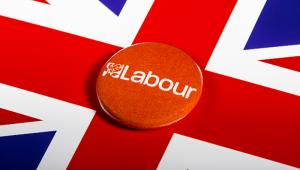The seats in the elections on Thursday next week where only one person is standing are spread across 47 councils in the country, the pressure group’s research said.
Of these the Conservatives will gain 137, Liberal Democrats will get five, four will go to independent candidates and Labour will get two.
The society also highlighted parties or independent candidates have also been guaranteed an additional 152 seats through multi-member wards going ‘under contested’ – where a lack of competition means that at least one seat in the ward is guaranteed for a particular party.
There are around 580,000 potential voters in these types of wards, and a further 270,000 voters who are in areas that will see no electoral challenge at all.
About 850,000 voters will be affected by the 300 uncontested or under contested seats, the group added.
The East Midlands has the highest number of uncontested seats, followed by the East of England, West Midlands and the South East, the research said.
Darren Hughes, chief executive of the ERS, said: “Elections are a cornerstone of our democracy. Yet around 270,000 are being denied the chance to exercise their most basic democratic right and have their say on who represents them. Clearly something is not right, with voters going totally unheard.
“Large parts of England are at risk of becoming ‘democracy deserts’, with seats going uncontested and residents having no say who represents them.”
Hughes noted Scotland has almost entirely eradicated “the scourge of uncontested seats” since introducing proportional voting in 2007.
This method, where voters rank their preferred representatives as opposed to selecting one candidate, could bring an end to what the ERS calls “rotten boroughs”.
“It’s time we brought the era of rotten boroughs to a close, by scrapping the broken first-past-the-post system in England and ensuring there is always real competition. A more proportional system would end the crisis of local ‘one party states’ and open up our politics at last,” he added.











